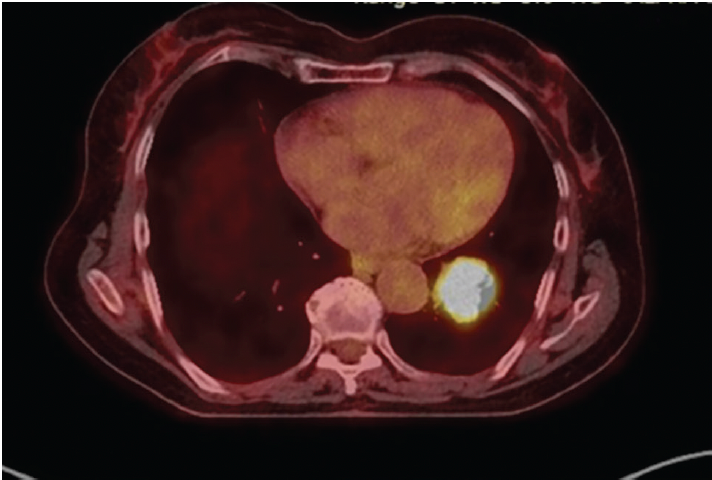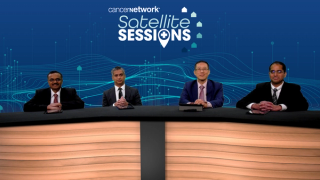
Lung Cancer
Latest News
Latest Videos

CME Content
More News

Phase 3 data also show an improvement in deterioration-free survival with TTFields and best supportive care in those with NSCLC and brain metastases.
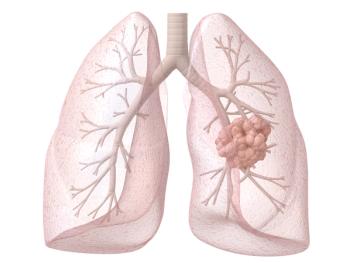
Long-term data from the CheckMate 9LA trial support nivolumab/ipilimumab plus chemotherapy as frontline treatment for metastatic NSCLC.

Most treatment-related adverse effects reported with CAN-2409 plus valacyclovir in a phase 2 trial were grade 1 or 2.

CheckMate 77T trial saw an EFS improvement with neoadjuvant nivolumab in stage III N2 and stage III non-N2 non–small cell lung cancer.

Phase 2 data support further evaluation of datopotamab deruxtecan in patients with non–small cell lung cancer and brain metastases.

The CheckMate 816 trial reinforced the EFS data of nivolumab plus chemotherapy in resectable NSCLC.

Final DFS results from IMpower010 show consistent survival when adjuvant atezolizumab was used in stage IB to IIIA NSCLC.

Phase 2 data also show activity in diseases with resistance mutations such as G2032R with taletrectinib.

Either telehealth or in-person recipes of palliative care did not impact the quality of life outcomes for patients with advanced non–small cell lung cancer.

Osimertinib may become a new standard of care for those with EGFR-mutant NSCLC, according to Suresh S. Ramalingam, MD, FACP, FASCO.

Data from the ADRIATIC trial show consistent PFS and OS benefits with durvalumab across predefined limited-stage small cell lung cancer subgroups.

A PFS benefit with adagrasib was observed across all key patient subgroups in the phase 3 KRYSTAL-12 trial.

Subcutaneous amivantamab proved noninferior vs intravenous administration in EGFR-mutated non–small cell lung cancer.

Updated MARIPOSA results found improves progression-free survival in patients with high-risk EGFR-mutant advanced non-small cell lung cancer when treated with amivantimab/lazertinib.
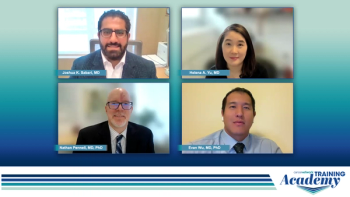
An overview of frontline treatment options for patients with EGFR-mutated non–small cell lung cancer.

Expert perspectives on next-generation sequencing for patients with non–small cell lung cancer, highlighting challenges and the differences between RNA and DNA testing.
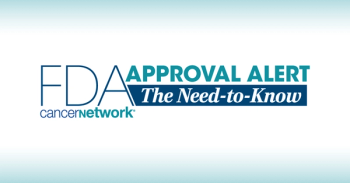
The FDA has approved alectinib for the adjuvant treatment of patients with ALK-positive non-small cell lung cancer with tumors that are least 4 cm or node positive, as detected by an FDA-approved test.

Rian M. Hasson Charles, MD, MPH, FACS, discusses advances in equitable lung cancer screening and her experiences as a woman in thoracic oncology.
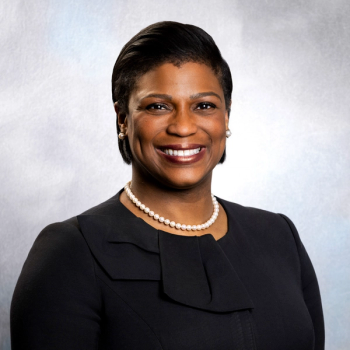
Rian M. Hasson Charles, MD, MPH, FACS, has a first-of-its-kind role at Brigham and Women’s Hospital that will focus on health equity.
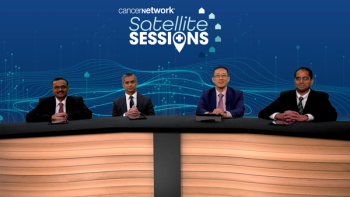
Dr. Gregory Gan presents Case 4, featuring a 71-year-old diagnosed with Stage IIIA NSCLC experiencing pneumonitis following Chemo-IO treatment, prompting a discussion with expert insight on the monitoring and management of this condition.

Dr. Gregory Gan introduces Case 2, involving a 70-year-old former smoker with Stage IIIB NSCLC and a PD-L1 level of 10%, prompting discussion with emphasis on the importance of shared decision-making with the patient and their caregivers.

Dr. Gregory Gan introduces Case 2, featuring an 82-year-old former smoker with poorly differentiated lung adenocarcinoma and a PD-L1 level of 85%, initiating a conversation on the role of a multidisciplinary approach to treatment and consideration factors for surgical and radiotherapy interventions.

Gregory Gan, MD, presents Case 1 involving a 72-year-old former smoker with Stage-IIIA NSCLC and a PD-L1 level of 90%, initiating a discussion on the treatment and management of the case.

Results from a phase 2 trial support the safety and tolerability of VGT-309 in patients with suspected lung cancer who undergo standard-of-care surgical resection.

University of Kansas experts offer guidance for community practitioners treating non-small cell lung cancer (NSCLC).




